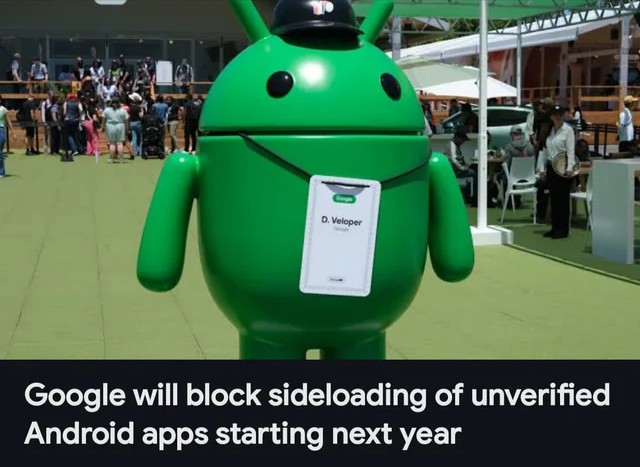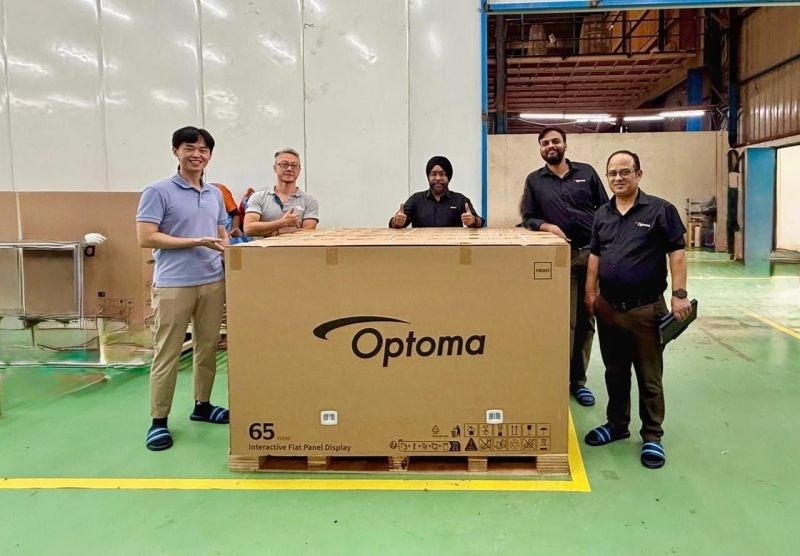
Follow WOWNEWS 24x7 on:

In a sweeping move to bolster Android’s security framework, Google has announced that starting September 2026, sideloading apps from unverified developers will be blocked on certified Android devices. This marks a significant shift in the platform’s long-standing openness, aiming to curb the proliferation of malware and fraudulent apps distributed outside the Play Store.
The change will require all developers—whether publishing through Google Play or distributing apps independently—to undergo a formal identity verification process. While sideloading will still be technically possible, only apps from verified developers will be installable on devices certified by Google, which includes nearly all mainstream Android smartphones and tablets.
Key highlights from Google’s announcement
- The new policy will be enforced beginning September 2026 in Brazil, Indonesia, Singapore, and Thailand, with a global rollout expected in 2027.
- Developers must verify their identity through a new Android Developer Console, submitting legal identification, contact details, and app ownership credentials.
- Google cites internal data showing that sideloaded apps from unverified sources are 50 times more likely to contain malware than those from the Play Store.
- The verification process is designed to prevent malicious actors from repeatedly distributing harmful apps under fake identities.
- Existing Play Store developers will be automatically registered, while independent developers must complete the new verification steps.
How the verification system works
Google’s new developer verification program will unfold in three phases:
1. October 2025: Early access begins for selected developers to test the new Android Developer Console.
2. March 2026: Global access opens for all developers, allowing them to register and verify their apps.
3. September 2026: Enforcement begins in select countries, where only apps from verified developers can be installed on certified devices.
To verify their identity, developers must submit:
- Legal name, address, phone number, and email
- Government-issued ID for individuals
- D-U-N-S number and official website for organizations
- App package names and signing keys to prove ownership
Google emphasizes that the verification process is similar to an ID check at an airport. It will not involve reviewing or moderating app content, nor will it restrict the origin of apps. The goal is to establish a baseline of accountability across the Android ecosystem without compromising its openness.
Implications for developers and users
While the move is expected to enhance user safety, it has sparked debate within the developer community. Independent and hobbyist developers, who often rely on sideloading to distribute niche or experimental apps, may find the new requirements burdensome. Privacy-focused developers have also raised concerns about the collection of personal data, although Google has assured that none of the submitted information will be made public.
For users, the change could mean fewer risks from malware and scams, especially in regions where sideloading is common. However, it also signals a gradual shift toward a more controlled app distribution model, reminiscent of Apple’s tightly regulated iOS ecosystem.
Industry context and broader trends
This policy update comes amid growing scrutiny of app distribution practices across major platforms. Google’s move follows its loss in the Epic Games antitrust case, which mandates the inclusion of third-party app stores on Android. By enforcing developer verification, Google aims to retain control over app safety even as alternative marketplaces gain traction.
The company has already seen positive results from similar verification protocols introduced on the Play Store in 2023, with a noticeable decline in malware and fraud. Extending this model to sideloaded apps is part of a broader strategy to unify security standards across the Android landscape.
Sources: The Hans India, LiveMint, Ars Technica, TechTimes, MSN




